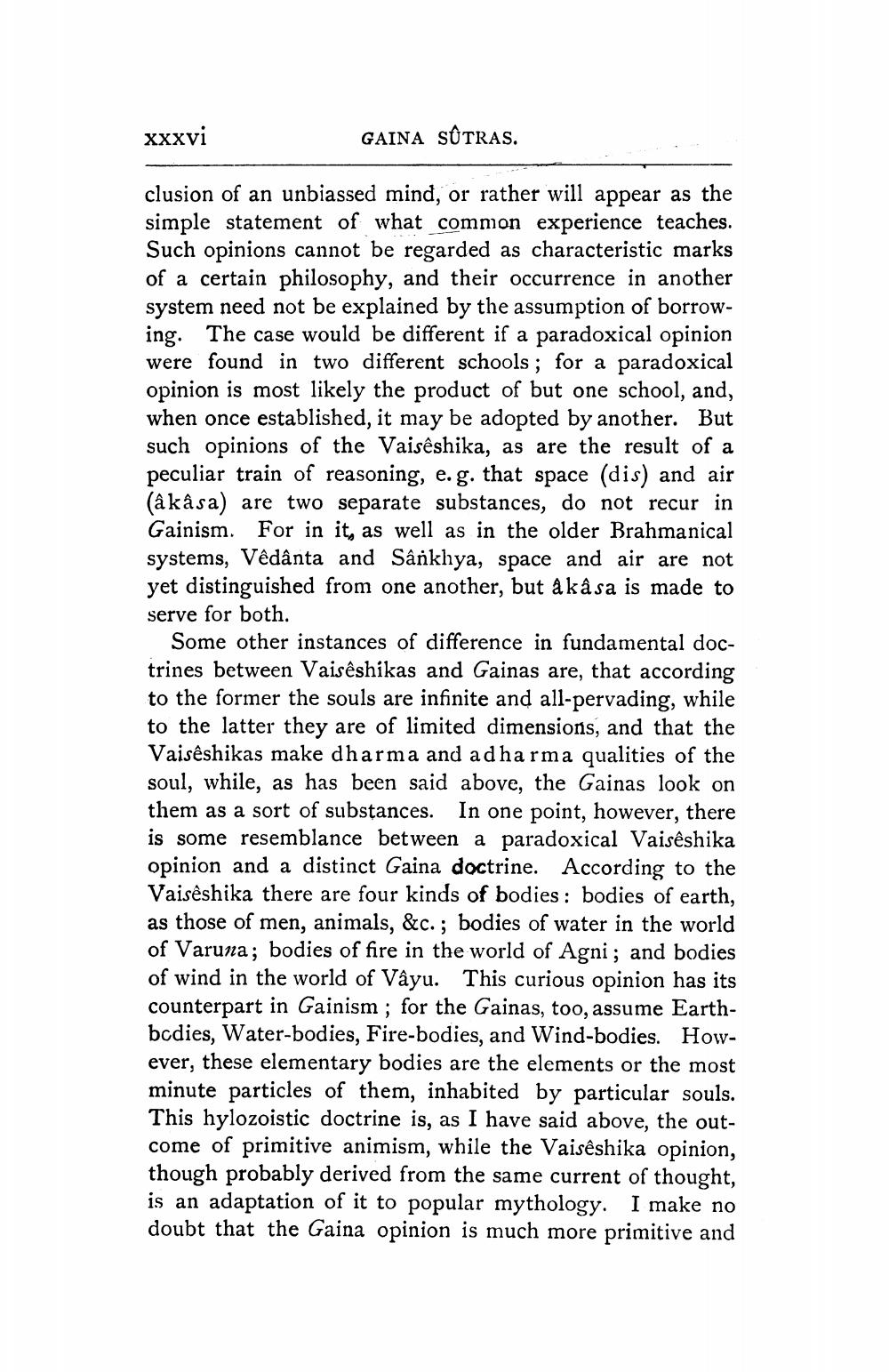________________
xxxvi
GAINA SÛTRAS.
clusion of an unbiassed mind, or rather will appear as the simple statement of what common experience teaches. Such opinions cannot be regarded as characteristic marks of a certain philosophy, and their occurrence in another system need not be explained by the assumption of borrowing. The case would be different if a paradoxical opinion were found in two different schools ; for a paradoxical opinion is most likely the product of but one school, and, when once established, it may be adopted by another. But such opinions of the Vaisêshika, as are the result of a peculiar train of reasoning, e.g. that space (dis) and air (akâsa) are two separate substances, do not recur in Gainism. For in it, as well as in the older Brahmanical systems, Vêdânta and Sankhya, space and air are not yet distinguished from one another, but â kâsa is made to serve for both.
Some other instances of difference in fundamental doctrines between Vaisêshikas and Gainas are, that according to the former the souls are infinite and all-pervading, while to the latter they are of limited dimensions, and that the Vaisêshikas make dharma and adharma qualities of the soul, while, as has been said above, the Gainas look on them as a sort of substances. In one point, however, there is some resemblance between a paradoxical Vaisêshika opinion and a distinct Gaina doctrine. According to the Vaisêshika there are four kinds of bodies: bodies of earth, as those of men, animals, &c.; bodies of water in the world of Varuna; bodies of fire in the world of Agni; and bodies of wind in the world of Vâyu. This curious opinion has its counterpart in Gainism; for the Gainas, too, assume Earthbcdies, Water-bodies, Fire-bodies, and Wind-bodies. However, these elementary bodies are the elements or the most minute particles of them, inhabited by particular souls. This hylozoistic doctrine is, as I have said above, the outcome of primitive animism, while the Vaisêshika opinion, though probably derived from the same current of thought, is an adaptation of it to popular mythology. I make no doubt that the Gaina opinion is much more primitive and




